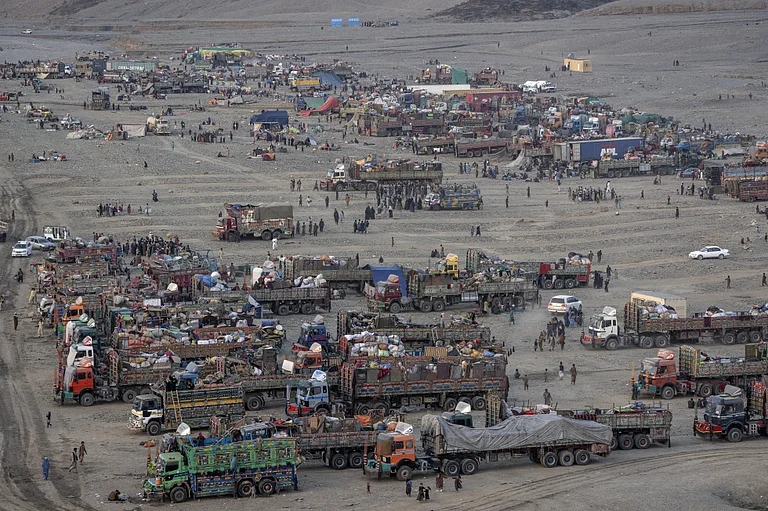
1.3 million Afghan refugees to be sent back from Pakistan.
The National Database and Registration Authority will facilitate the deregistration of returning Afghans.
The Pakistan government has decided to send back over 1.3 million Afghan refugees holding Proof of Registration (PoR) cards. Ministry of Interior has directed provincial governments and relevant agencies to map all PoR cardholders and devise action plans for repatriation.
According to Pakistani media reports, the process of repatriation will begin on September 1. The efforts to send back Afghan refugees began in 2023 when the government announced it would expel all "illegal aliens".
According to government sources, about 800,000 Afghan citizens have been repatriated, reported PTI. The federal government has informed the provinces that the formal repatriation and deportation of over 1.3 million Afghan refugees holding Proof of Registration (PoR) cards will begin on September 1, reported Pakistan's Dawn Newspaper.
The decision follows the Interior Ministry’s announcement on July 31 regarding the PoR cardholders, the last category of Afghans legally residing in Pakistan without visas. It stated that they became unlawful residents after their cards expired on June 30.
A letter from Pakistan's Ministry of Interior, dated August 4, was sent to the chief secretaries and police chiefs of the four provinces, as well as Pakistan-occupied Kashmir's Gilgit-Baltistan, regarding the implementation of the ongoing Illegal Foreigners Repatriation Plan.
“It has been decided that the voluntary return of PoR cardholders shall commence forthwith, while the formal repatriation and deportation process will take effect from September 1, 2025,” the letter said.
Besides, the ministry said that repatriation of illegal foreign nationals, including Afghan Citizen Card (ACC) holders, would continue as per the earlier decision under the IFRP.
In the letter, the authorities in PoK were instructed to provide databases of PoR cardholders to provincial, divisional and district committees.
The National Database and Registration Authority will facilitate the deregistration of returning Afghans at transit areas and border terminals. The Federal Investigation Agency will support repatriation at designated border crossings, according to the letter.
The ministry also directed provincial governments and relevant agencies to map all PoR cardholders and devise action plans for repatriation. It called for designated transit areas for deportees, along with transportation and financial arrangements.
Pakistani authorities had informed their Afghan counterparts earlier in March that PoR cards would not be extended beyond June 30, 2025, Dawn reported, citing official sources.
According to the United Nations High Commissioner for Refugees (UNHCR), over 1.3 million Afghans were living in Pakistan as of June 30, 2025. Of this, 717,945 were in Khyber Pakhtunkhwa, while 326,584 resided in Balochistan, 195,188 in Punjab, 75,510 in Sindh, and 43,154 in Islamabad.
In 2004-05, the Pakistan government, with assistance from the UNHCR, issued PoR cards to Afghan refugees, and in 2016, Afghan Citizenship Cards (ACC) were introduced through an amendment to the Foreigners Act 1946.
The UN agency acknowledged and appreciated Pakistan’s generosity in hosting refugees for over 40 years amid its own challenges. Meanwhile, the UNHCR, in a statement, expressed concern over Pakistan’s intention to forcibly return Afghan refugees holding PoR cards.
“Over the past days, UNHCR has received reports of arrests and detention of Afghans across the country, including PoR cardholders,” it said.
However, according to Dawn, given that those holding PoR cards have been recognised as refugees for decades, their forced return is contrary to Pakistan’s long-standing humanitarian approach to this group and a violation of the principle of non-refoulement.





























